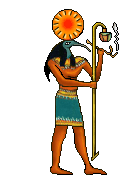 |
 |
 |
 |
 |
 |
 |
 |
 |
 |
 |
 |
![]()
 |
 02-07-2005, 10:36 AM
02-07-2005, 10:36 AM
|
#1 | |
|
Jack Burton
Join Date: August 24, 2002
Location: Aussie now in the US of A!
Age: 37
Posts: 5,403
|
check it out
Yeah, its kind of long... Sorry, but I thought I might as well put the entire article up [img]tongue.gif[/img] Quote:
  So what do you guys think? DO you like the fact that people pay real money for virtual stuff? |
|

|

|
 02-07-2005, 10:54 AM
02-07-2005, 10:54 AM
|
#2 |
|
Takhisis Follower
 Join Date: April 30, 2001
Location: szép Magyarország (well not right now)
Posts: 5,089
|
Interesting. Thanks for posting it. It's amazing what social upshakings can take place due to the march of technology. I don't like the fact that real money is paid for virtual stuff, but let's face it, it's gonna get more common as more and more effort and time is put into creating and accumulating virtual stuff, then people are likely to put more and more real world value on it. In 10 years' time at most, virtual things will probably have equal legal status to real things (with some notable exceptions, that don't translate to virtual worlds).
[ 02-07-2005, 10:56 AM: Message edited by: Vaskez ]
__________________
Too set in his ways to ever relate If he could set that aside, there'd be heaven to pay But weathered and aged, time swept him to grave Love conquers all? Damn, I'd say that area's gray |

|

|
 02-07-2005, 12:45 PM
02-07-2005, 12:45 PM
|
#3 |
|
Thoth - Egyptian God of Wisdom
 Join Date: November 3, 2001
Location: Canada
Age: 63
Posts: 2,871
|
Wow. That's pretty strange, the 3rd world labor bit really caught my attention. Pretty odd stuff.
|

|

|
 02-07-2005, 01:47 PM
02-07-2005, 01:47 PM
|
#4 |
|
Takhisis Follower
 Join Date: April 30, 2001
Location: szép Magyarország (well not right now)
Posts: 5,089
|
Yeah same here, I'd never heard of that before: well I guess it makes a change from us hearing about them doing dangerous manual labour.
__________________
Too set in his ways to ever relate If he could set that aside, there'd be heaven to pay But weathered and aged, time swept him to grave Love conquers all? Damn, I'd say that area's gray |

|

|
 02-07-2005, 06:21 PM
02-07-2005, 06:21 PM
|
#5 |
|
Zartan
Join Date: May 20, 2003
Location: Near Aberdeen, Scotland
Age: 34
Posts: 5,225
|
Yeah it does. I agree, that was very interesting. I thought it quite amazing when he said that the game designers and publishers could actually have the rights to the virtual weapons etc. and thefore the money. That could lead to a whole new area of things, maybe people selling virtual gold on ebay will soon have to pay the designers commission, which if you think about it is actually quite fair. The designers could also make an online bank, selling created gold for cash, although there might be some legal issues with this. But something to think about all the same.
__________________
[img]\"http://img.ranchoweb.com/images/ladyzekke/dragonwater2.gif\" alt=\" - \" /> |

|

|
 02-08-2005, 06:54 PM
02-08-2005, 06:54 PM
|
#6 |
|
Symbol of Cyric
|
Wait until the first "virtual murder" case hits the courts.... or "virtual rape" (hey, sick ppl out there, you never know....)
I think if someone plays a game and finds some awesome artifact; then they should have the right to sell it... IN THE GAME WORLD. I do not think these forms of entertainment should be used to make a quick buck (or slow one for that matter). Sadly; theres always some situation that developes like this: some can't get laid pencil necked geek who's played the game for like the past 22 years would kill someone and then talk trash about it. Then that someone would probably pay much money for the "longsword +4 against pencil-necked geeks". Sadly, it all comes down to playing fair and getting along, something that has always been out of the question with ppl. SilentThief
__________________
http://www.wilhelmscream.net/ |

|

|
 02-10-2005, 05:32 PM
02-10-2005, 05:32 PM
|
#7 |
|
Avatar
Join Date: January 6, 2003
Location: NJ, USA
Age: 25
Posts: 550
|
You know, I actually discussed this at lunch today with my manager. He games in the pay-to-play world; I game in the free (for now) NWN world. He justifies that if it brings him happiness, he can spend $50 on E-bay and get the items he needs. I tell him that I either earn them the hard way (making me appreciate them more) or I take the time with the tool-set to make my own.
I have no doubt that in his world, loss if items you spent Real Money on generates some Real Disputes (punch outs or worse, if the offendee can track down the offender). But thats why I prefer NWN to EverCrack.
__________________
<b>\"In the darkest hour theres a light that shines on every human being...but one!\"</b> |

|

|
 02-10-2005, 09:06 PM
02-10-2005, 09:06 PM
|
#8 |
|
Manshoon
 Join Date: July 15, 2002
Location: Los Angeles
Age: 49
Posts: 213
|
This has always been an interesting topic to me. I was an Econ student in college, and always wondered what we could learn about economies from studying MMORPGs. This MMORPG in particular caught my attention - they explicitly say that in game currency is equivalent to US dollars. There is no monthly fee (it's a free download too), but if you want, you can deposit money in your account, which will appear as virtual money in your avatars inventory. You can cash out as well. (Note: I have not verified any of this. This is from the website and PC Gamer article)
I thought this was a really great idea, but I've been reluctant to try it. What is to say that the developpers won't create uber-items, and sell them in game to lessen their financial liability (and if they did, would that be wrong?). And what happens if there's a run on the bank? If everyone cashes out at the same time, will they be able to pay? Would you have legal recourse if they didn't?
__________________
[img]\"http://img.photobucket.com/albums/v381/AngAvs/avatar6517_2.jpg\" alt=\" - \" /><br />A Thinking Monkey told me. |

|

|
 02-10-2005, 10:06 PM
02-10-2005, 10:06 PM
|
#9 |
|
Emerald Dragon
 Join Date: December 10, 2003
Location: UK
Age: 40
Posts: 961
|
Thats more a problem with all banks, none can realy afford for everyone to take all their cash and leave, they just don't have all the money..
I'd rather see this nonsense stop though, I mean how long is it before designers get smart and have you sign a ten page contract before playing MMOG's, waiving any right to legal action on account of lost items and so on.. MMOG's have gotten themselves into this mess because of levels.. Content, that's what keep's a MMOG alive, and too many devlopers think that levels = content.. I mean how many times have you find uber sword +[insert level here] gotten from a mob that is just a rehash of somthing you faced for the first time 90 odd levels ago? Whats the diffrence between a level 10 Rat monster, and a level 20 Mutated rat monster? Well to a level 20 player the level 10 rat moster is no threat, and the level 20 is a challenge, while the level 30 rat monster is impossible.. To a level 30 player the level 20 is no threat, the level 30 is a challenge and the level 40 is impossible.. See the patern, and this is what many MMOG's are, they repakage the same mobs, use diffrent grafics and names, but they are basicaly the same things you've been fighting since level 1. How is this relivent? Simple, if MMOG's didn't use the never ending treadmill approach people wouldn't feel such possesion over items and charactors, whats 72 hours work if it's gone? three days not somthing to get overly upset with, whats 1000 hours work on a charactor and items? The current Breed of MMOG's have dug their own graves.. shame they are going to drag all the other down with them
__________________
-Jenn |

|

|
 02-10-2005, 10:08 PM
02-10-2005, 10:08 PM
|
#10 |
|
Emerald Dragon
 Join Date: December 10, 2003
Location: UK
Age: 40
Posts: 961
|
Thats more a problem with all banks, none can realy afford for everyone to take all their cash and leave, they just don't have all the money..
I'd rather see this nonsense stop though, I mean how long is it before designers get smart and have you sign a ten page contract before playing MMOG's, waiving any right to legal action on account of lost items and so on.. MMOG's have gotten themselves into this mess because of levels.. Content, that's what keep's a MMOG alive, and too many devlopers think that levels = content.. I mean how many times have you find uber sword +[insert level here] gotten from a mob that is just a rehash of somthing you faced for the first time 90 odd levels ago? Whats the diffrence between a level 10 Rat monster, and a level 20 Mutated rat monster? Well to a level 20 player the level 10 rat moster is no threat, and the level 20 is a challenge, while the level 30 rat monster is impossible.. To a level 30 player the level 20 is no threat, the level 30 is a challenge and the level 40 is impossible.. See the patern, and this is what many MMOG's are, they repakage the same mobs, use diffrent grafics and names, but they are basicaly the same things you've been fighting since level 1. How is this relivent? Simple, if MMOG's didn't use the never ending treadmill approach people wouldn't feel such possesion over items and charactors, whats 72 hours work if it's gone? three days not somthing to get overly upset with, whats 1000 hours work on a charactor and items? The current Breed of MMOG's have dug their own graves.. shame they are going to drag all the other down with them
__________________
-Jenn |

|

|
 |
| Currently Active Users Viewing This Thread: 1 (0 members and 1 guests) | |
|
|
 Similar Threads
Similar Threads
|
||||
| Thread | Thread Starter | Forum | Replies | Last Post |
| Should i get an MMOG? | DrowArchmage | Miscellaneous Games (RPG or not) | 34 | 06-16-2006 08:21 PM |
| Newbie to MMOG... please help | Avatar | Miscellaneous Games (RPG or not) | 8 | 01-24-2005 05:34 PM |
| Federal Court orders State Supreme Court to Remove Ten Commandments | Timber Loftis | General Discussion | 52 | 07-07-2003 11:35 PM |